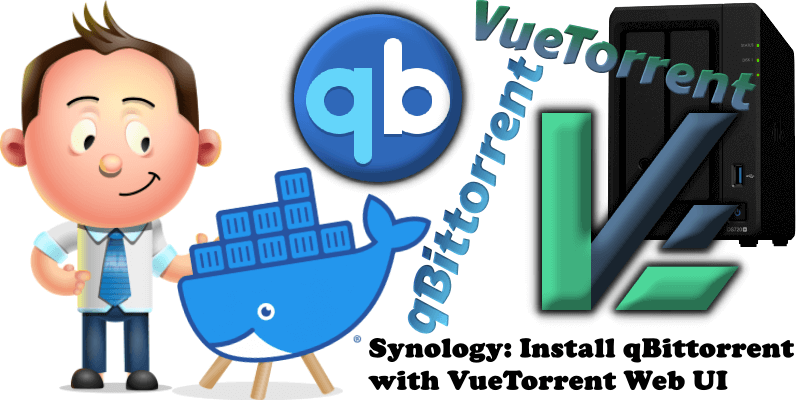
qBittorrent is a free and open source torrent client that helps users download content off the Internet. Some people prefer to apply to the current qBittorrent WEB UI the modern WEB UI of VueTorrent, which I really must say is wonderful. In this step by step guide I will show you how to install qBittorrent on your Synology NAS with the modern WEB UI from VueTorrent using Docker.
This guide works perfectly with the latest qBittorrent v5.1.4 release.
STEP 1
Please Support My work by Making a Donation.
STEP 2
Install Container Manager via Synology “Package Center”. If you run an older DSM version (under 7.2), search for Docker instead of Container Manager.
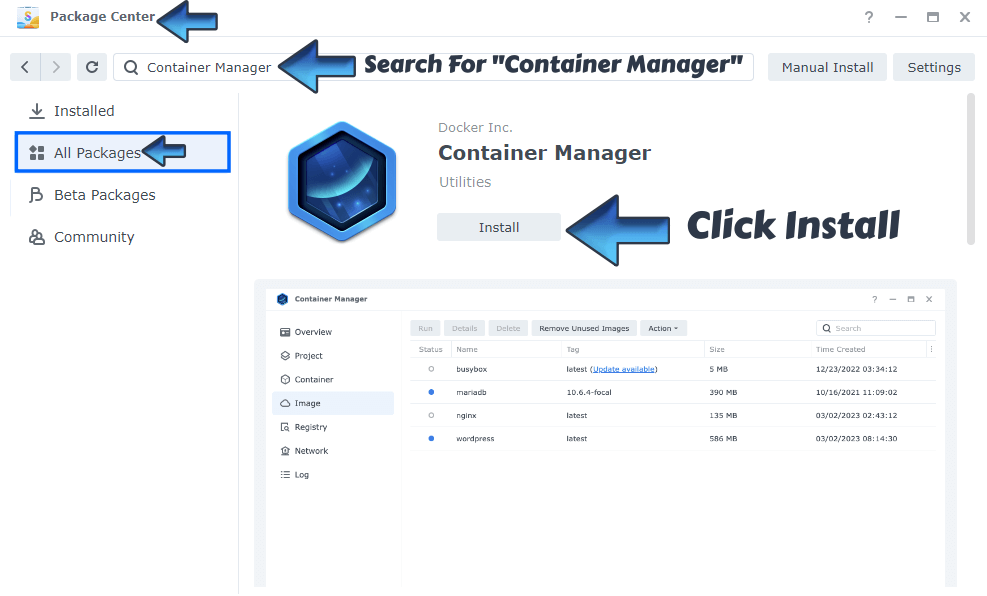
STEP 3
Go to File Station and open the docker folder. Inside the docker folder, create one new folder and name it qbittorrent-vue. Follow the instructions in the image below.
Note: Be careful to enter only lowercase, not uppercase letters.
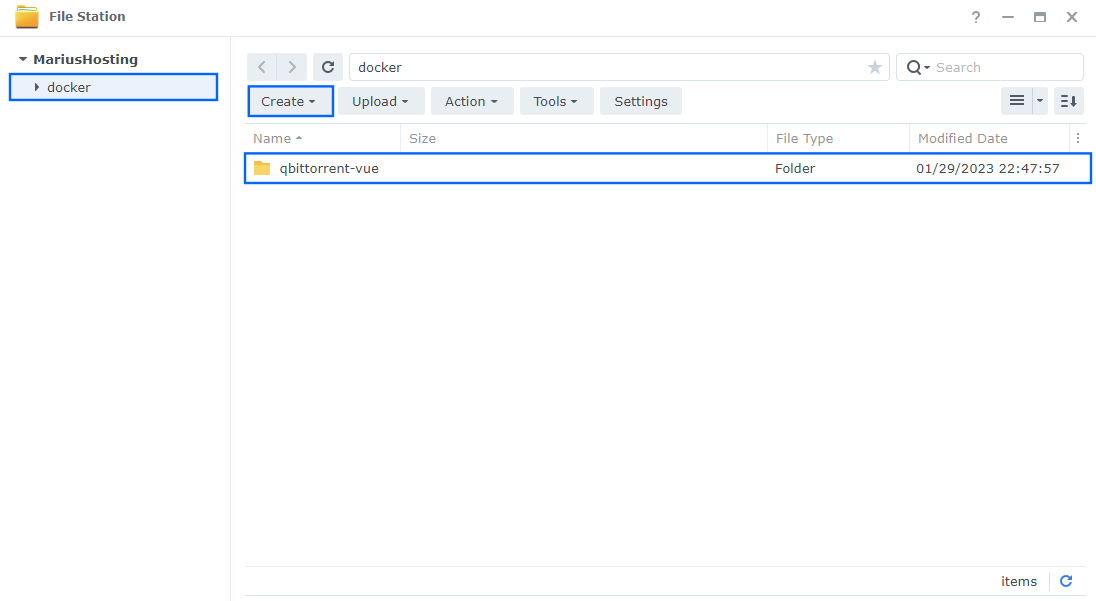
STEP 4
Now create two new folders inside the qbittorrent-vue folder that you have previously created at STEP 3 and name them config and downloads. Follow the instructions in the image below.
Note: Be careful enter only lowercase, not uppercase letters.
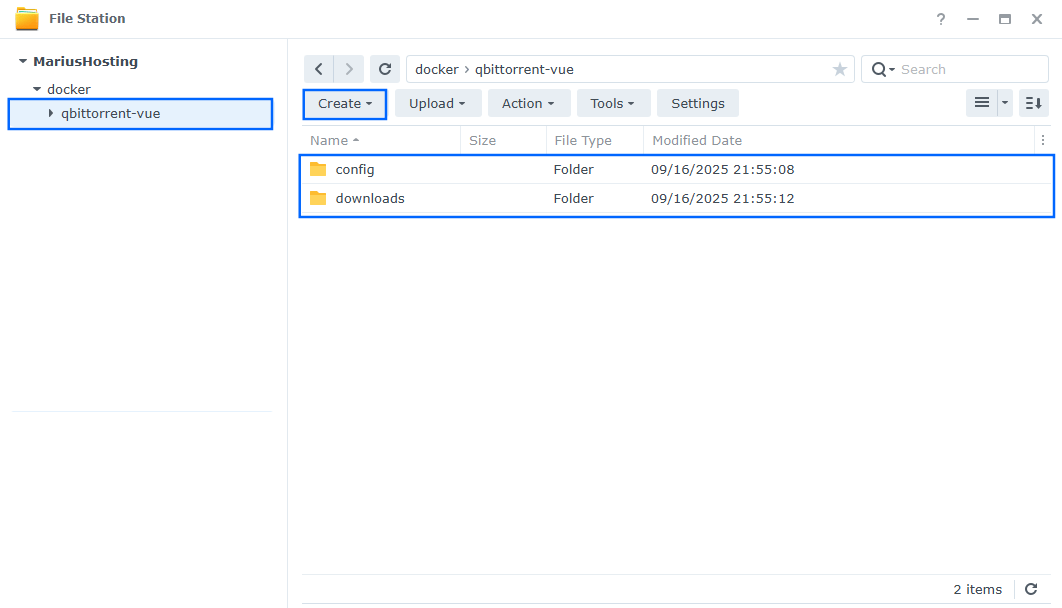
STEP 5
Go to Control Panel / Task Scheduler / Create / Scheduled Task / User-defined script. Follow the instructions in the images below.
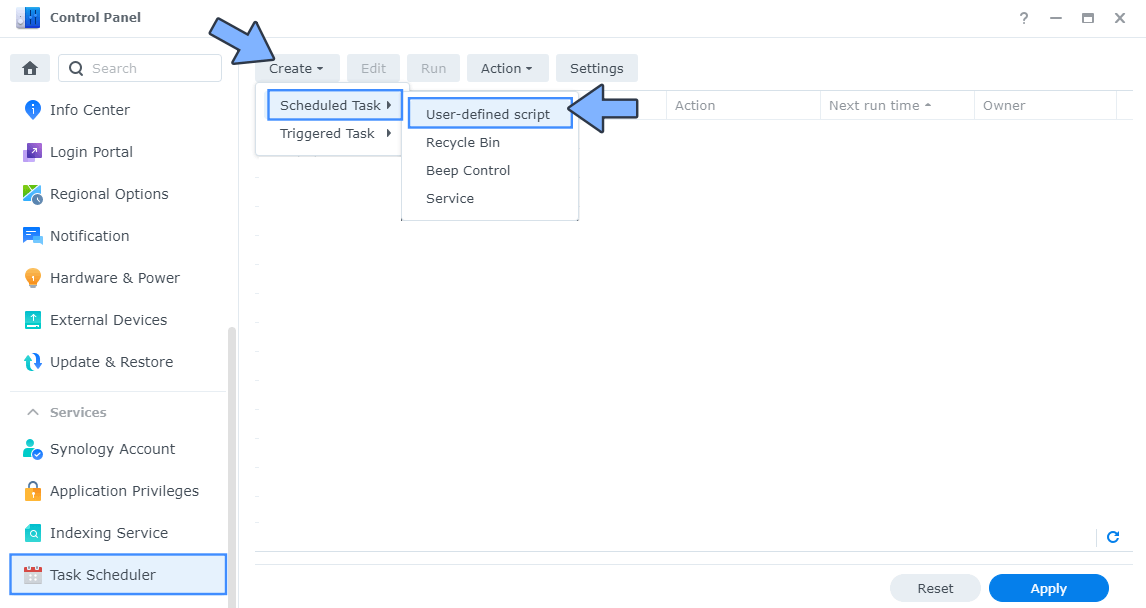
STEP 6
Once you click on User-defined script a new window will open. Follow the instructions below:
- General: In the Task field type in Install qBittorrent VueTorrent. Uncheck “Enabled” option. Select root User.
- Schedule: Select Run on the following date then select “Do not repeat“.
- Task Settings: Check “Send run details by email“, add your email then copy paste the code below in the Run command area. After that click OK.
docker run -d --name=qbittorrent-vue \ -p 6881:6881 \ -p 6881:6881/udp \ -p 9866:9866 \ -e WEBUI_PORT=9866 \ -e PUID=1026 \ -e PGID=100 \ -e TZ=Europe/Bucharest \ -e DOCKER_MODS=ghcr.io/vuetorrent/vuetorrent-lsio-mod:latest \ -v /volume1/docker/qbittorrent-vue/config:/config \ -v /volume1/docker/qbittorrent-vue/downloads:/downloads \ --tty=true \ --restart always \ ghcr.io/linuxserver/qbittorrent
Note: Before you paste the code above in the Run command area below, change the value numbers for PUID and PGID with your own values. (Follow my step by step guide on how to do this.)
Note: Before you paste the code above in the Run command area below, change the value for TZ (Select your current Time Zone from this list).
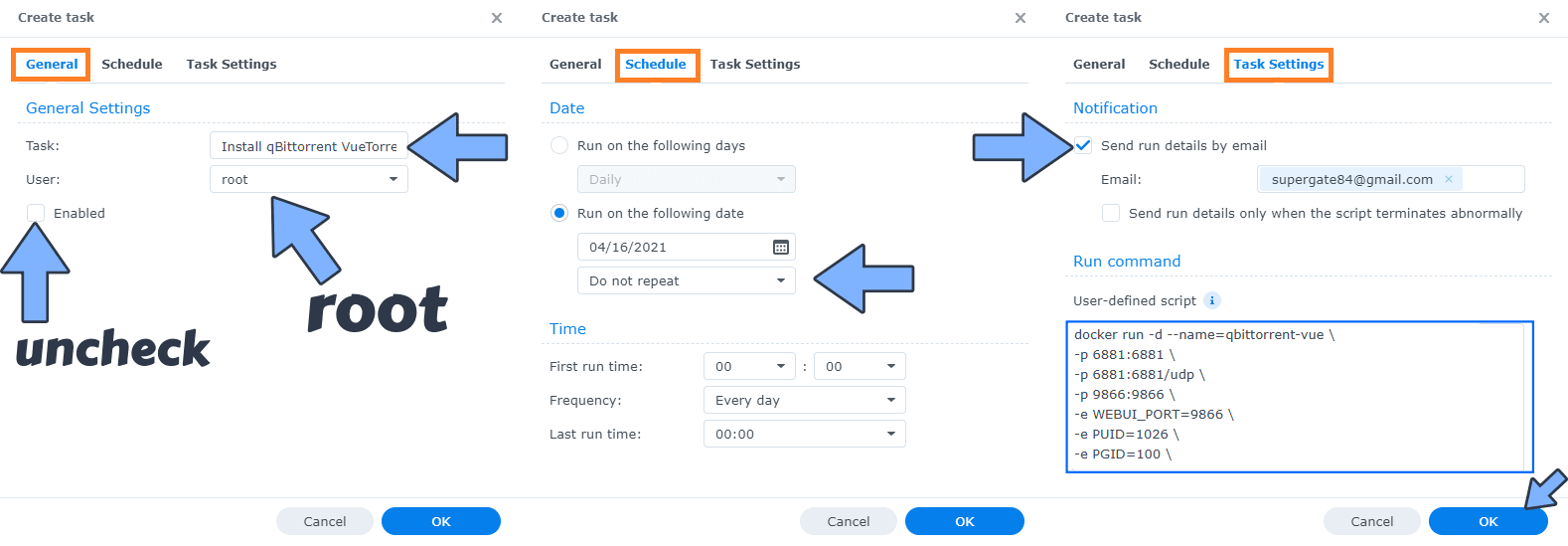
STEP 7
After you click OK on STEP 6 a new warning pop up window will open. Click OK.
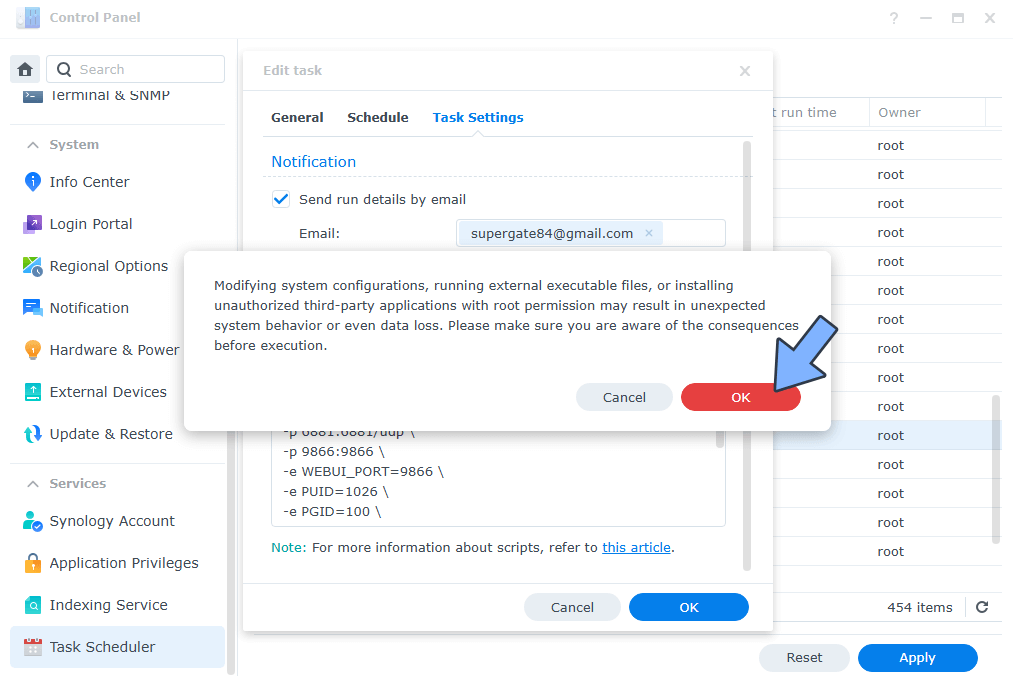
After you click OK, type in your DSM Password then click Submit. Follow the instructions in the image below.
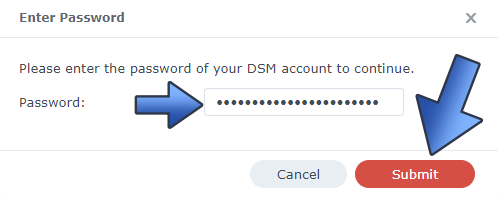
STEP 8
After you click Submit on STEP 7, select your “Install qBittorrent VueTorrent” Task then click the “Run” tab. You will be asked to run Install qBittorrent VueTorrent – click OK. Follow the instructions in the image below.
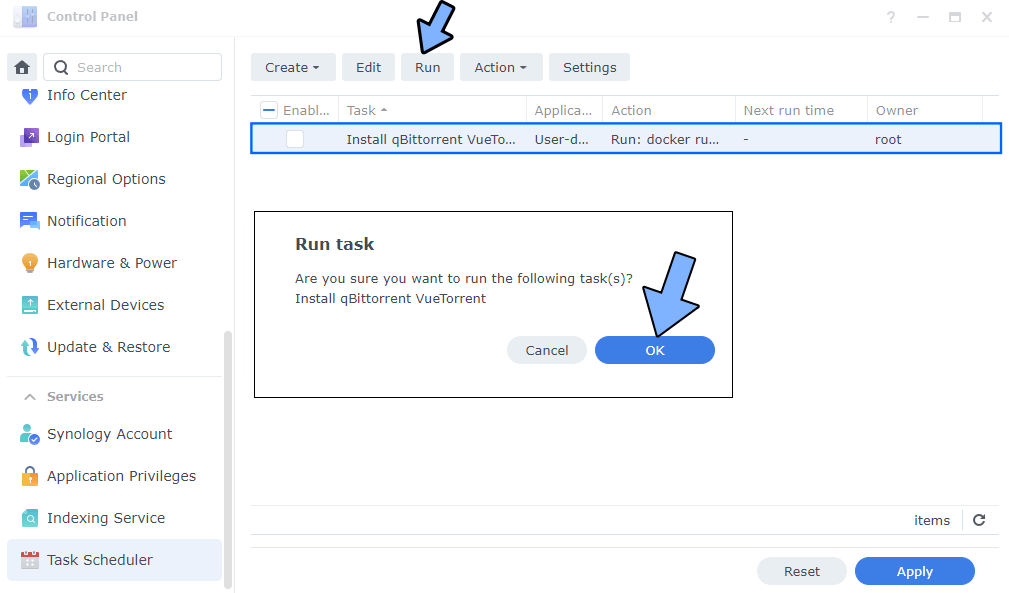
STEP 9
Open Container Manager. On the left sidebar in Container Manager, click Container. Identify your qbittorrent-vue instance, then click the Details tab. Follow the instructions in the image below.
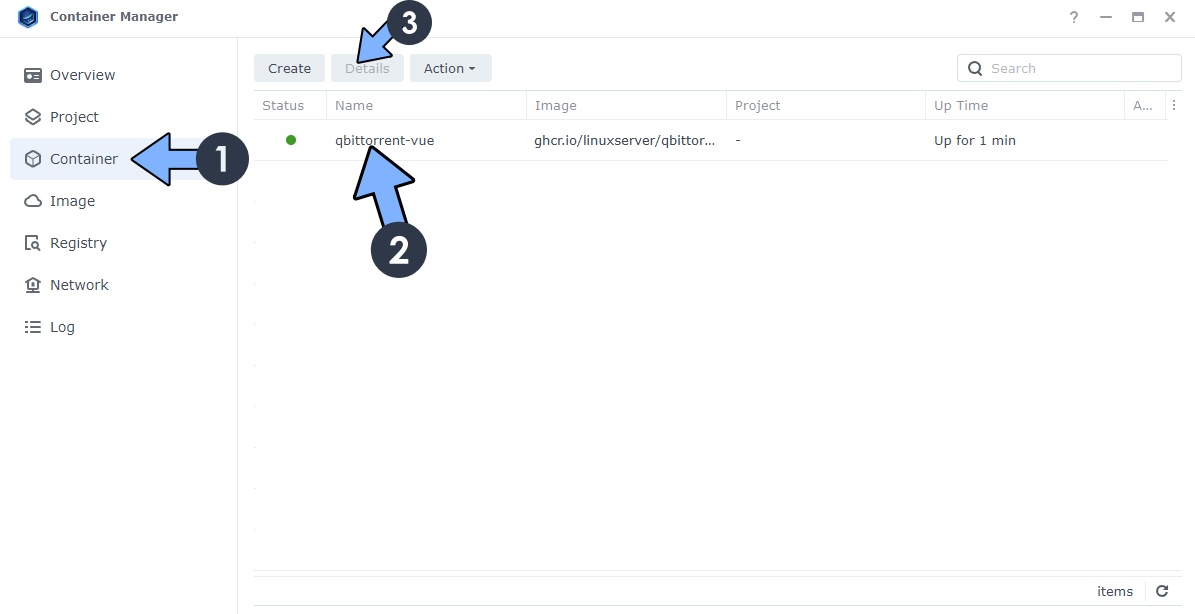
STEP 10
Click the Log tab, then Export and HTML. Follow the instructions in the image below.
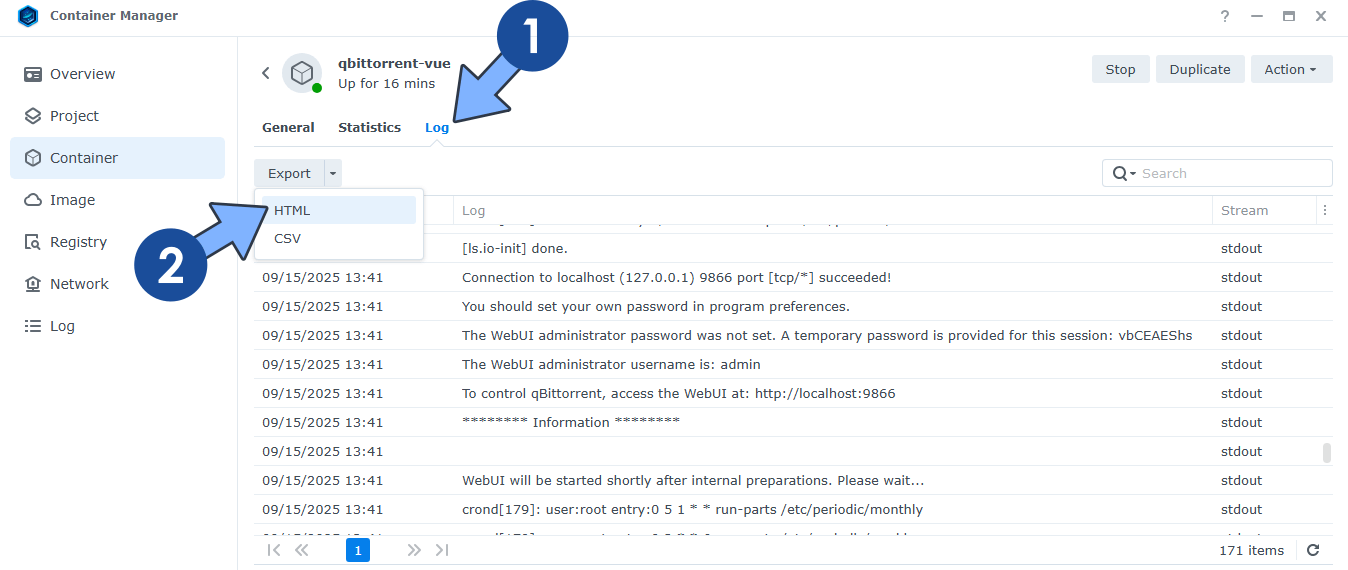
STEP 11
A new browser window will open. Copy the temporary password. Follow the instructions in the image below.

STEP 12
🟢Please Support My work by Making a Donation. Almost 99,9% of the people that install something using my guides forget to support my work, or just ignore STEP 1. I’ve been very honest about this aspect of my work since the beginning: I don’t run any ADS, I don’t require subscriptions, paid or otherwise, I don’t collect IPs, emails, and I don’t have any referral links from Amazon or other merchants. I also don’t have any POP-UPs or COOKIES. I have repeatedly been told over the years how much I have contributed to the community. It’s something I love doing and have been honest about my passion since the beginning. But I also Need The Community to Support me Back to be able to continue doing this work.
STEP 13
Now open your browser and type in http://Synology-ip-address:9866 Type in the default Username that is admin and the temporary password that you have previously copied at STEP 11. Click Login. Follow the instructions in the image below.
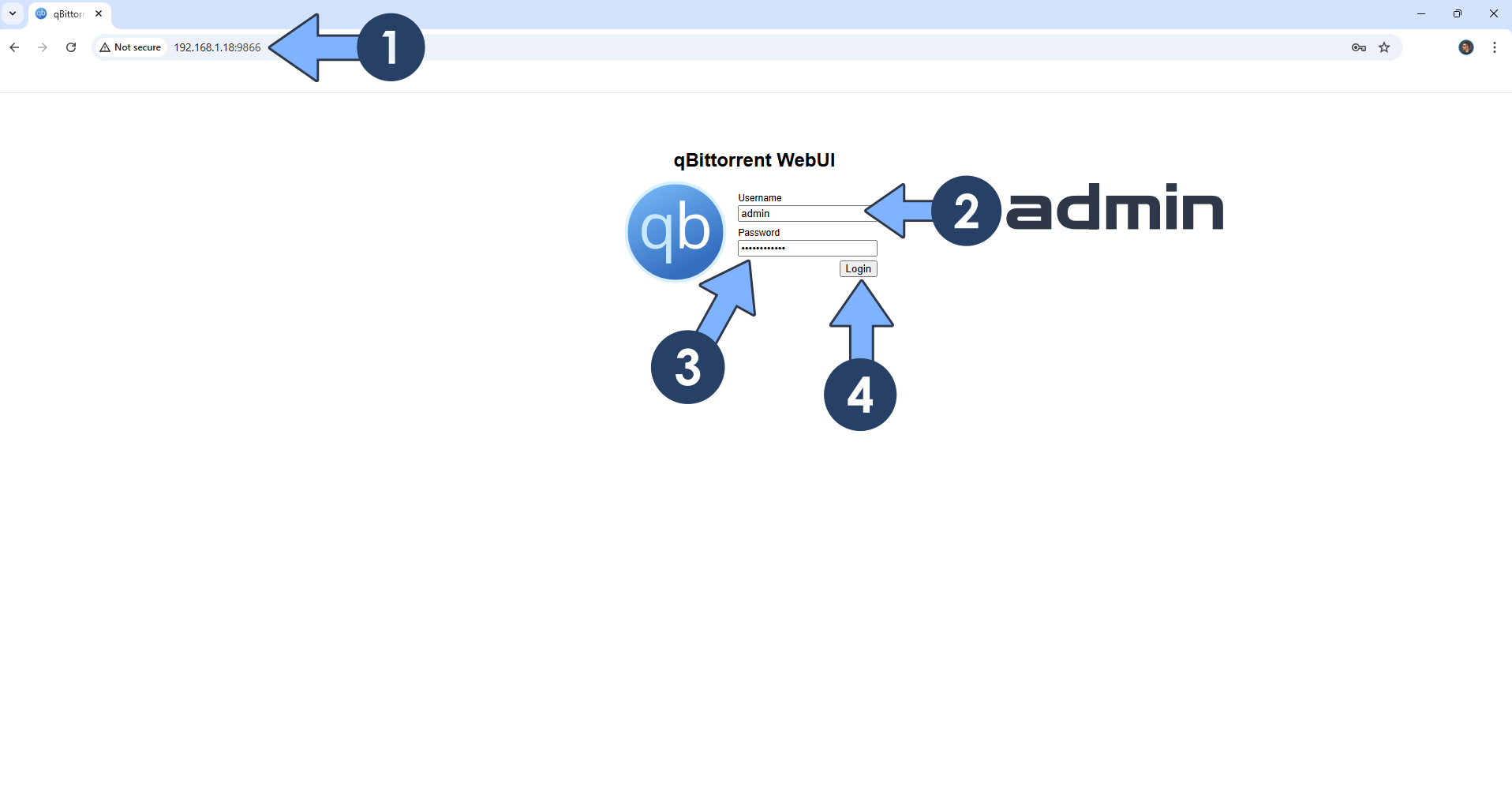
STEP 14
Change the default username and the temporary password with your own credentials. Click the settings icon. Click the Web UI tab. In the Authentication area, type in your own Username and Password, then scroll down the window until you find the Save button. Follow the instructions in the image below.
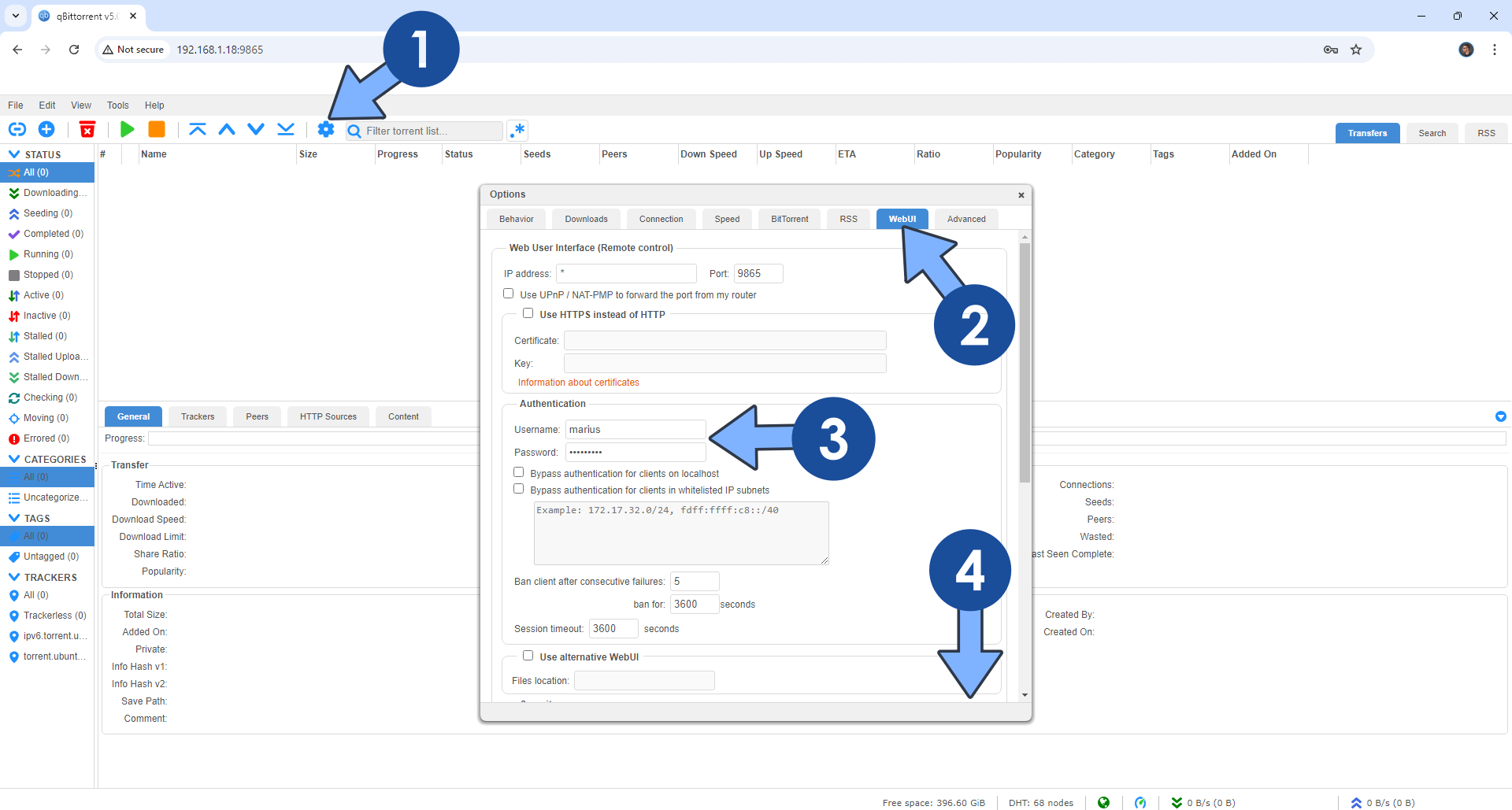
STEP 15
Click the Save button to Save the settings. Follow the instructions in the image below. From now on you will connect to the qBittorrent instance with your own Username and Password that you have previously created at STEP 14.
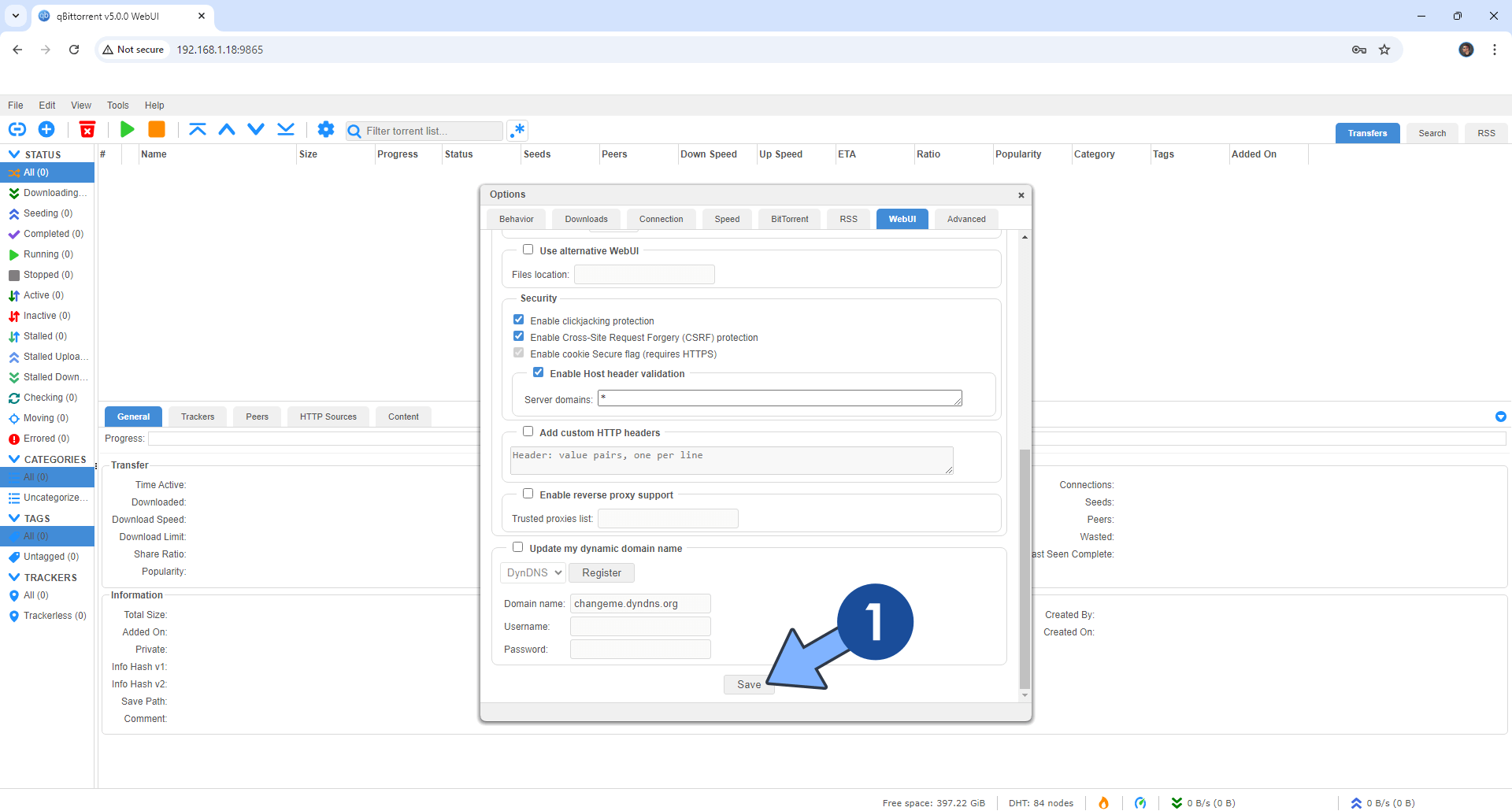
STEP 16
At the top left of the page, click on the Settings gear icon. After you click the gear icon, a new window will open. Click the WebUI tab then check “Use alternative WebUI”. In the Files location field, type in /vuetorrent. Click Save. Follow the instructions in the image below.
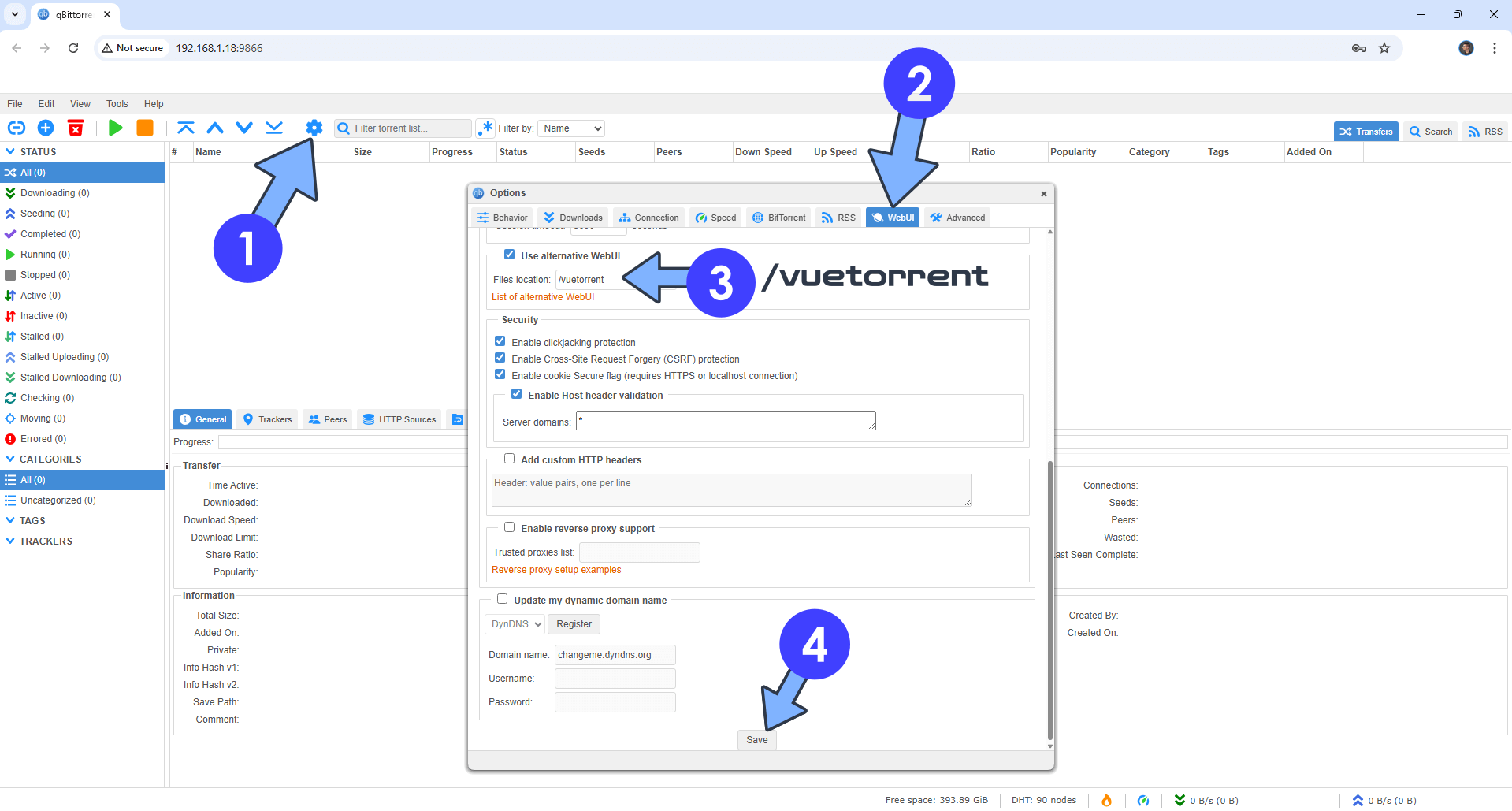
STEP 17
Your new VueTorrent WEB UI at a glance. At the top right of the page, click the plus+ to start downloading a torrent file. Follow the instructions in the image below.
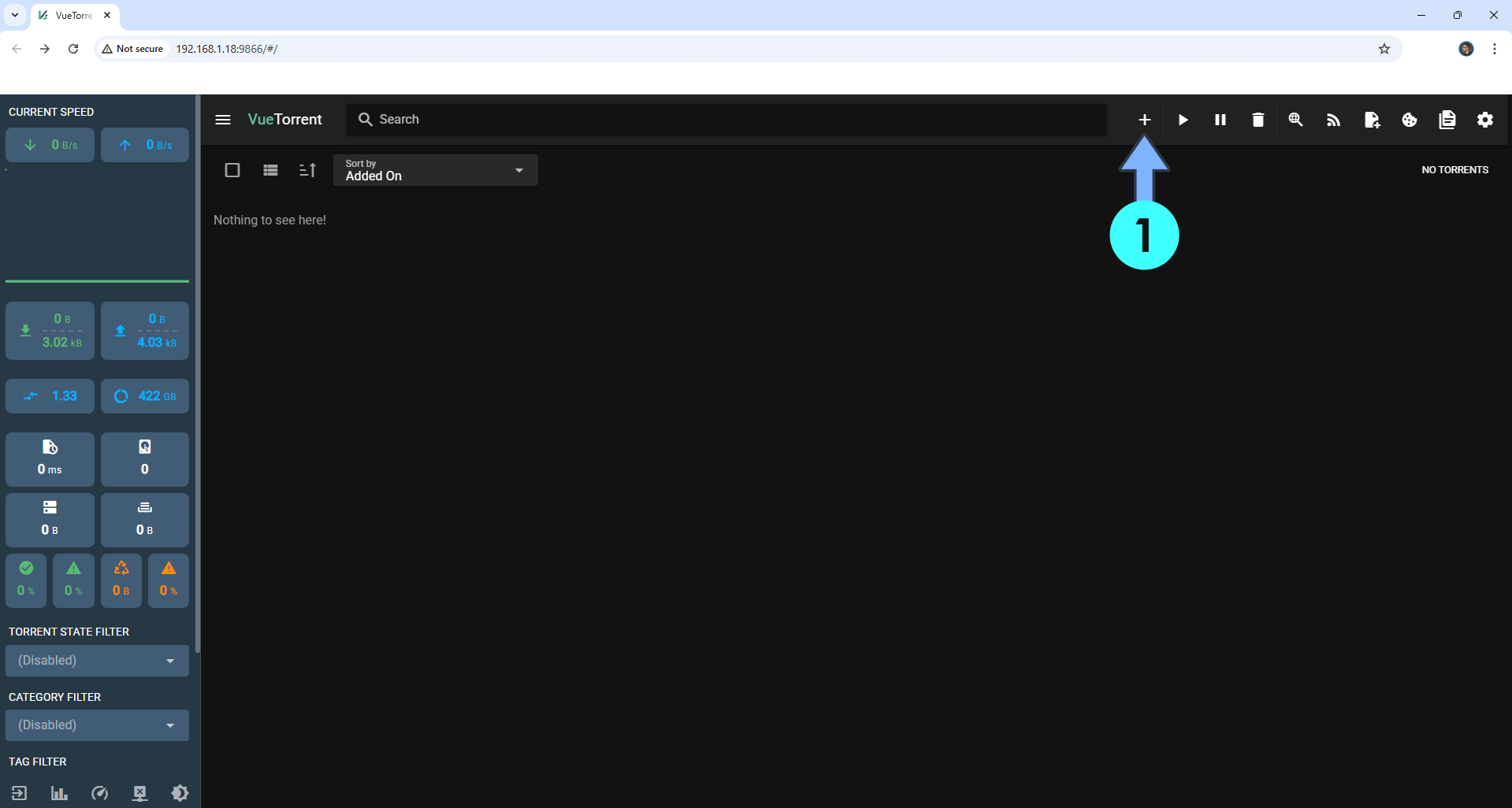
STEP 18
After you click the plus+ button, a new window will open. Paste the Torrent URL link then click ADD TORRENTS. Follow the instructions in the image below.
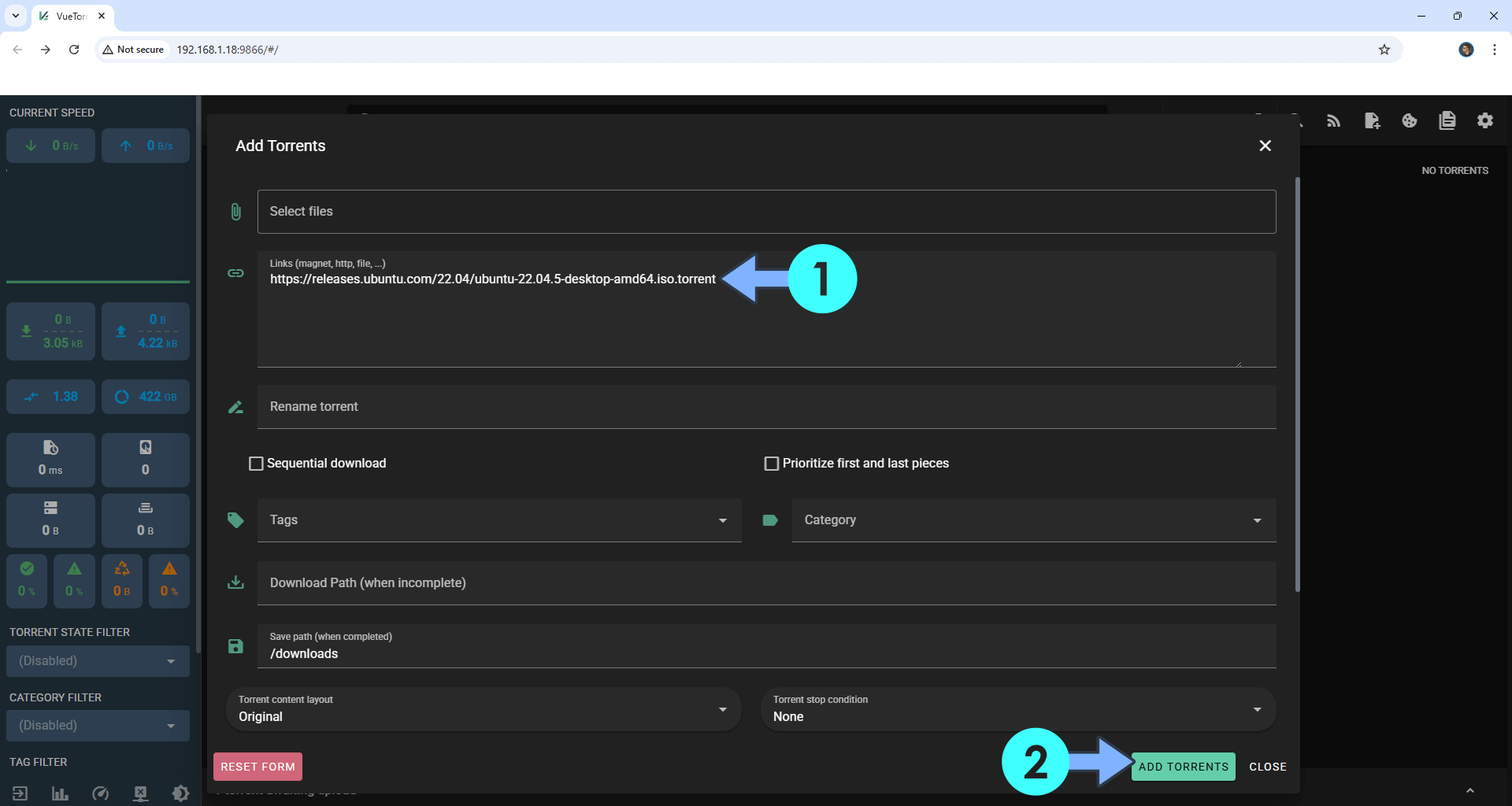
Your download will start in a couple of seconds.
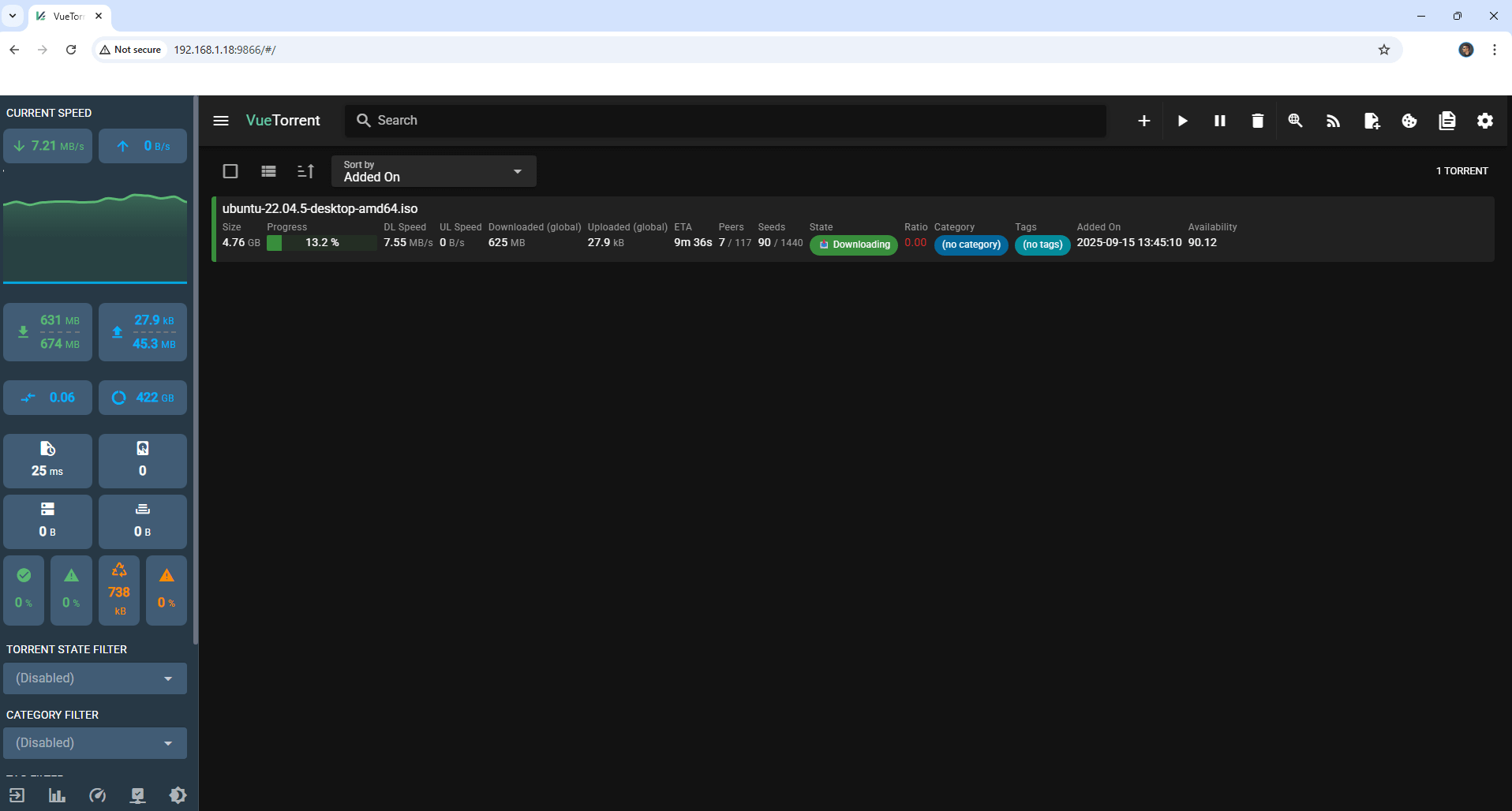
Enjoy your new qBittorrent Web UI interface!
🆘TROUBLESHOOTING
If you encounter issues by using this container, make sure to check out the Common Docker issues article.
Note: If you want to run the qBittorrent VueTorrent container over HTTPS, check How to Run Docker Containers Over HTTPS. In order to make qBittorrent VueTorrent work via HTTPS, it’s mandatory to activate WebSocket.
Note: Can I run Docker on my Synology NAS? See the supported models.
Note: You can use qBittorrent together with Flood for a better user experience.
Note: How to Back Up Docker Containers on your Synology NAS.
Note: Find out how to update the qBittorrent VueTorrent container with the latest image.
Note: How to Free Disk Space on Your NAS if You Run Docker.
Note: How to Schedule Start & Stop For Docker Containers.
Note: How to Activate Email Notifications.
Note: How to Add Access Control Profile on Your NAS.
Note: How to Change Docker Containers Restart Policy.
Note: How to Use Docker Containers With VPN.
Note: Convert Docker Run Into Docker Compose.
Note: How to Clean Docker.
Note: How to Clean Docker Automatically.
Note: Best Practices When Using Docker and DDNS.
Note: Some Docker Containers Need WebSocket.
Note: Find out the Best NAS Models For Docker.
Note: Activate Gmail SMTP For Docker Containers.
This post was updated on Saturday / November 29th, 2025 at 11:18 PM
